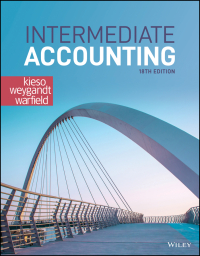Question
Developing a Master Budget for a Manufacturing Organization Jacobs Incorporated manufactures a product with a selling price of $50 per unit. Units and monthly cost
Developing a Master Budget for a Manufacturing Organization Jacobs Incorporated manufactures a product with a selling price of $50 per unit. Units and monthly cost data follow:
| Variable: | |
| Selling and administrative | $5 per unit sold |
| Direct materials | 10 per unit manufactured |
| Direct labor | 10 per unit manufactured |
| Variable manufacturing overhead | 5 per unit manufactured |
| Fixed: | |
| Selling and administrative | $20,000 per month |
| Manufacturing (including depreciation of $10,000) | 30,000 per month |
Jacobs pays all bills in the month incurred. All sales are on account with 50 percent collected the month of sale and the balance collected the following month. There are no sales discounts or bad debts. Jacobs desires to maintain an ending finished goods inventory equal to 20 percent of the following month's sales and a raw materials inventory equal to 10 percent of the following month's production. January 1, 2011, inventories are in line with these policies. Actual unit sales for December and budgeted unit sales for January, February, and March of 2011 are as follows:
| Sales - Units | 5,250 | 7,000 | 7,000 | 8,000 |
| Sales - Dollars | $262,500 | $350,000 | $350,000 | $400,000 |
Additional information:
- The January 1 beginning cash is projected as $4,000.
- For the purpose of operational budgeting, units in the January 1 inventory of finished goods are valued at variable manufacturing cost.
- Each unit of finished product requires one unit of raw materials.
- Jacobs intends to pay a cash dividend of $6,000 in January.
NOTE: For the entire problem - do not use any negative signs with your answers unless appropriate for net income(loss) or ending balance.
(a) A production budget for January and February.
| Requirements for current sales | Answer | Answer | Answer |
| Desired ending inventory | Answer | Answer | |
| Total requirements | Answer | Answer | |
| Less beginning inventory | Answer | Answer | |
| Production requirements | Answer | Answer |
(b) A purchases budget in units for January.
| Current requirements (units) | Answer | Answer |
| Desired ending inventory | Answer | |
| Total requirements | Answer | |
| Less beginning inventory | Answer | |
| Purchases (units) | Answer | |
| Purchases (dollars at $10 each) | $Answer |
(c) A manufacturing cost budget for January.
| Variable costs | |
| Direct materials | $Answer |
| Direct labor | Answer |
| Variable manufacturing overhead | Answer |
| Total variable costs | Answer |
| Fixed manufacturing overhead | Answer |
| Total manufacturing overhead | $Answer |
(d) A cash budget for January.
| Beginning balance | $Answer | |
| Receipts: | ||
| December sales | $Answer | |
| January sales | Answer | Answer |
| Total cash available | Answer | |
| Disbursements: | ||
| Purchases | Answer | |
| Direct labor | Answer | |
| Variable manufacturing overhead | Answer | |
| Fixed manufacturing overhead (exclude depreciation) | Answer | |
| Variable selling and administrative | Answer | |
| Fixed selling and administrative | Answer | |
| Dividend | Answer | Answer |
| Ending Balance | $Answer |
(e) A budgeted contribution income statement for January.
| Sales | $Answer | |
| Less variable costs: | ||
| Cost of goods sold | $Answer | |
| Selling and administrative | Answer | Answer |
| Contribution | Answer | |
| Less fixed costs: | ||
| Manufacturing overhead | Answer | |
| Selling and administrative | Answer | Answer |
| Net income | $Answer |
(f) Prepare a cash budget for January assuming management plans to increase the January end raw materials inventory to 100 percent of February's production needs.
| Beginning balance | $Answer | |
| Receipts: | ||
| December sales | $Answer | |
| January sales | Answer | Answer |
| Total cash available | Answer | |
| Disbursements: | ||
| Purchases | Answer | |
| Direct labor | Answer | |
| Variable manufacturing overhead | Answer | |
| Fixed manufacturing overhead (exclude depreciation) | Answer | |
| Variable selling and administrative | Answer | |
| Fixed selling and administrative | Answer | |
| Dividend | Answer | Answer |
| Ending Balance | $Answer |
(g) Actions management might consider to resolve the problem indicated in the revised cash budget in part (f) include:
Delaying the cash dividend.If possible, pay for fifty percent of each month's purchases in during the month and pay for the other fifty percent in the following month, an average of fifteen to sixteen days after receipt.Obtain a line of credit with a financial institution.All of the above.
Step by Step Solution
There are 3 Steps involved in it
Step: 1

Get Instant Access to Expert-Tailored Solutions
See step-by-step solutions with expert insights and AI powered tools for academic success
Step: 2

Step: 3

Ace Your Homework with AI
Get the answers you need in no time with our AI-driven, step-by-step assistance
Get Started


